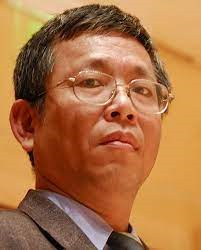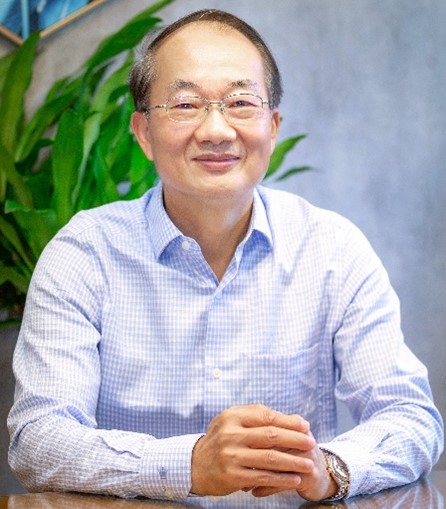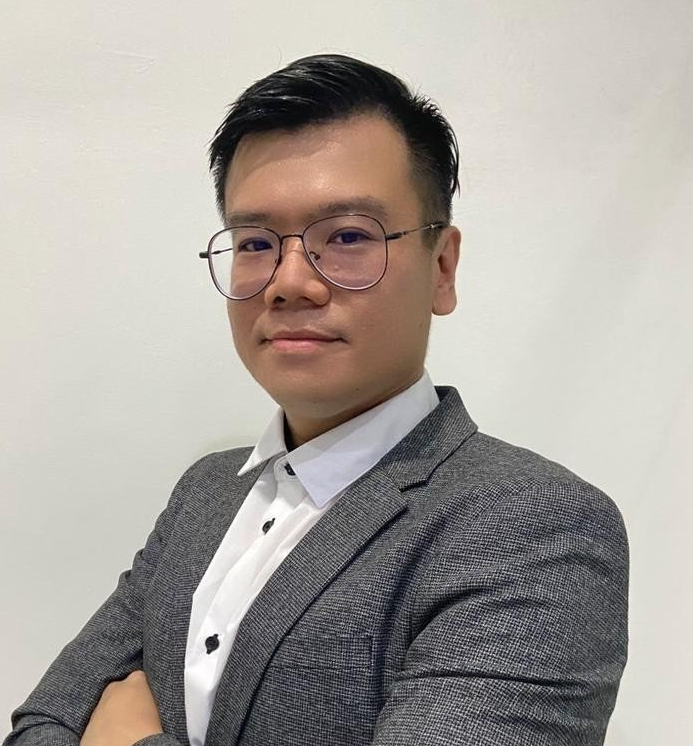PLENARY SPEECH 1
Talk title: Decomposed Fuzzy Systems
Abstract:
In the talk, a novel fuzzy structure termed as the decomposed fuzzy system (DFS) is proposed to act as the fuzzy approximator. The proposed structure is to decompose each fuzzy variable into layers of fuzzy systems and each layer is to characterize one traditional fuzzy set. Similar to forming fuzzy rules in traditional fuzzy systems, layers from different variables will form the so-called component fuzzy systems. The structure of DFS is proposed to facilitate minimum distribution learning effects among component fuzzy systems so that the learning can be very efficient. It can be seen from our experiments that even when the rule number increases, the learning time in terms of cycles is still almost constant. It can also be found that the function approximation capability and learning efficiency of the DFS are much better than that of the traditional fuzzy systems when employed in adaptive fuzzy control systems. Besides, in order to further reduce the computational burden, a simplified DFS is proposed in this study to satisfy possible real time constraints required in many applications. From our simulation results, it can be seen that the simplified DFS can perform fairly with a more concise decomposition structure. Furthermore, when used in modeling, the proposed DFS not only can have much faster convergent speed, but also can achieve a smaller testing error than those of other fuzzy systems.
Speaker:
 |
|
Professor. Shun-Feng Su
IEEE Fellow/Chair Professor
Vice President of National Taiwan University of Science and Technology.
Member of board of Government, IEEE Systems, Man, and Cybernetics society.
Member of Supervisory Committee, Taiwan Fuzzy System Association.
Email: sfsu@mail.ntust.edu.tw
|
Shun-Feng Su (Fellow, IEEE) received the B.S. degree in electrical engineering from National Taiwan University, Taipei, Taiwan, in 1983, and the M.S. and Ph.D. degrees in electrical engineering from Purdue University, West Lafayette, IN, USA, in 1989 and 1991, respectively.,He is currently a Chair Professor with the Department of Electrical Engineering, National Taiwan University of Science and Technology, Taipei. He has published more than 300 refereed journal and conference papers in the areas of robotics, intelligent control, fuzzy systems, neural networks, and nonderivative optimization. His current research interests include computational intelligence, machine learning, virtual reality, intelligent transportation systems, smart home, robotics, and intelligent control.,Dr. Su is very active in various international/domestic professional societies. He is currently the IEEE SMC Society Distinguished Lecturer Program Chair and a member of board of government in the same society. He also serves as a board member of various academic societies. He also acted as the general chair, the program chair, or various positions for many international and domestic conferences. He currently serves as an Associate Editor of IEEE Transactions on Cybernetics and Information Science, a Senior Editor and an Associate Editor of IEEE Access, the Executive Editor of the Journal of the Chinese Institute of Engineers, and an Area Editor and an Associate Editor of International Journal of Fuzzy Systems. He is an IFSA Fellow, a CACS Fellow, and a RST Fellow.
PLENARY SPEECH 2
Talk title: Processing in memory techniques with emerging memories
Abstract:
With the recent advancement of artificial intelligence, particularly large language models, there has been an increasing demand for low-power computing hardware capable of performing energy-efficient computations. Unfortunately, the traditional approach of scaling devices according to Moore's law has slowed down, and the scaling of supply voltage has already reached its limit. Additionally, conventional computing circuits based on Von Neumann architecture suffer from significant energy loss when transferring data between computing and memory units. This energy loss becomes even more critical in Artificial Intelligent applications where substantial volumes of data are frequently exchanged between computing and memory units. In this talk, I will explore and review processing-in-memory techniques using emerging memristors to address this challenge. Moreover, I will discuss and explain practical issues such as various non-ideal effects that should be considered when designing processing-in-memory circuits.
Speaker:
 |
|
Professor. Kyeong-Sik Min
School of Electrical Engineering,
Kookmin University, Seoul, South Korea
Email: mks@kookmin.ac.kr
|
Kyeong-Sik Min received the B.S. degree in electronics and computer engineering from Korea University, Seoul, South Korea, in 1991, and the M.S.E.E. and Ph. D. degrees in electrical engineering from Korea Advanced Institute of Science and Technology, Daejeon, South Korea, in 1993 and 1997, respectively.
In 1997, he joined Hynix Semiconductor, Inc., where he was engaged in the development of low-power and high-speed DRAM circuits. From 2001 to 2002, he was a Research Associate with the University of Tokyo, Tokyo, Japan, where he designed low-leakage memories and low-leakage logic circuits.
In September 2002, he joined the Faculty of Kookmin University, Seoul, South Korea, where he is currently a Professor in the School of Electrical Engineering. He was a Visiting Professor with the University of California, Merced, Merced, CA, USA, from August 2008 to July 2009.
His research interests include low-power VLSI, memory design, and power IC design. He is a member of the Institute of Electronics Engineers of Korea, and the Institute of Electronics, Information, and Communication Engineers in Japan.
He was on various technical program committees, such as Asian Solid-State Circuits Conference, International SoC Design Conference, and Korean Conference on Semiconductors. He and his students were the recipient of the IDEC CAD & Design Methodology Award (2011), IDEC Chip Design Contest Award (2011), and IDEC Chip Design Contest Award (2012).
PLENARY SPEECH 3
Talk title: AIoT and its Applications
Abstract:
Through several waves of ups and downs in the past decades, artificial intelligence (AI) has evolved into a must-have new technology or tool in various domains. With the advent of powerful GPU, AI-related research or AI-based applications have sprouted in every corner of the world. Originating from pure network connectivity, the Internet of Things (IoT) has become an infrastructure that collects every piece of data from physical devices, daily activities, images, or videos into a data reservoir. This creates research opportunities on integrating AI, IoT, big data, and cloud or edge computing, to improve the quality of industrial production and service.
Applications of AI algorithms, models, and systems play important roles and can be found everywhere, including widespread usage in industry and medical systems for tasks such as locating and detecting scratches or defects in product surface, TFT LED TVs, solar panels, healthcare, and aquaculture. This talk will address from the AIoT structure and its applications, especially in industry and aquaculture, from system engineering perspective
Speaker:
 |
|
Professor. Yo-Ping Huang
President, National Penghu University of Science and Technology, Taiwan
Vice President for Conferences and Meetings, IEEE SMCS
Chair, the TC on Intelligent Transportation Systems, IEEE SMCS
Email: yphuang@gms.npu.edu.tw
|
Yo-Ping Huang (Fellow, IEEE) received the Ph.D. degree in electrical engineering from Texas Tech University, Lubbock, TX, USA. He is the President of National Penghu University of Science and Technology, Penghu, Taiwan. He is also a Chair Professor in the Department of Electrical Engineering, National Taipei University of Technology, Taipei, Taiwan, where he served as the Secretary General. He was a Professor and the Dean of Research and Development, the Dean of the College of Electrical Engineering and Computer Science, and the Department Chair with Tatung University, Taipei. His current research interests include deep learning modeling, intelligent control, fuzzy systems design and modeling, and rehabilitation systems design.
Dr. Huang received 2021 Outstanding Research Award from Ministry of Science and Technology (MOST), Taiwan, and 2022 IoT Innovative Application Award from Pan Wen Yuan Foundation. He is a Fellow of IET, CACS, and TFSA. He serves as the IEEE SMCS VP for Conferences and Meetings, and Chair of the IEEE SMCS Technical Committee on Intelligent Transportation Systems. He was the IEEE SMCS BoG, President of the Taiwan Association of Systems Science and Engineering, the Chair of IEEE SMCS Taipei Chapter, the Chair of the IEEE CIS Taipei Chapter, and the CEO of the Joint Commission of Technological and Vocational College Admission Committee, Taiwan.
PLENARY SPEECH 4
Talk title: The Convergence of Simulation and Data: Utilizing AI in CAE Simulation
Abstract:
Simulation has long been a cornerstone of Computer-Aided Engineering (CAE) and Finite Element Analysis (FEA), allowing engineers to model and analyze complex systems with remarkable accuracy. However, traditional simulations often rely on simplified assumptions and theoretical models, which may not fully capture the intricacies of real-world phenomena. The proliferation of data, coupled with advancements in machine learning and data analytics, presents an opportunity to enhance the fidelity and reliability of simulation results.
By integrating data-driven techniques into CAE and FEA workflows, engineers can leverage the vast amounts of available data to improve simulation accuracy and efficiency. Real-time sensor data, experimental results, and historical performance data can be integrated into simulations, enabling dynamic and adaptive models that respond to changing conditions.
This presentation will delve into specific applications of the convergence of simulation and data in CAE and FEA. By integrating data-driven techniques into traditional simulation workflows, engineers can unlock new insights, optimize designs, and accelerate the product development cycle. In conclusion, this presentation aims to inspire discussions on the future possibilities and challenges of this convergence, fostering collaborations and driving innovation in the field of CAE and FEA.
Speaker:
 |
|
Mr. Lim Seng Tat
Sales Director (ASEAN) - Altair Engineering Sdn. Bhd
Simulation | Artificial Intelligence | High Performance Computing | Business Development | Account Management
Kuala Lumpur, Federal Territory of Kuala Lumpur, Malaysia
|
Lim Seng Tat is a seasoned professional with over 15 years of experiences in Simulation, High Performance Computing & Data Analytics in Manufacturing. He currently servers as Sales Director responsible for business development for entire South East Asia (ASEAN) region. With his technical expertise & strong communication skills, he successfully established solid partnership with numbers of universities & institutions in ASEAN region.
On the other hand, Lim Seng Tat is a professional business developer with more than 10 years of experience in Business Development processes. He is involved in the development of new Engineering Simulation (CAE) Software, High Performance & Cloud Computing, Data Analytics & Machine Learning opportunities.
Lim Seng Tat has experience in handling both direct & indirect sales in different geographies. He also has experience in key account manger handling & developing large and medium accounts. Mr. Tat is also a professional in dealing with multidisciplinary engineering organization involving in product development, research & manufacturing, these including: Automotive, Aerospace, Electronics, Consumer goods, Defense, Education & government agencies.